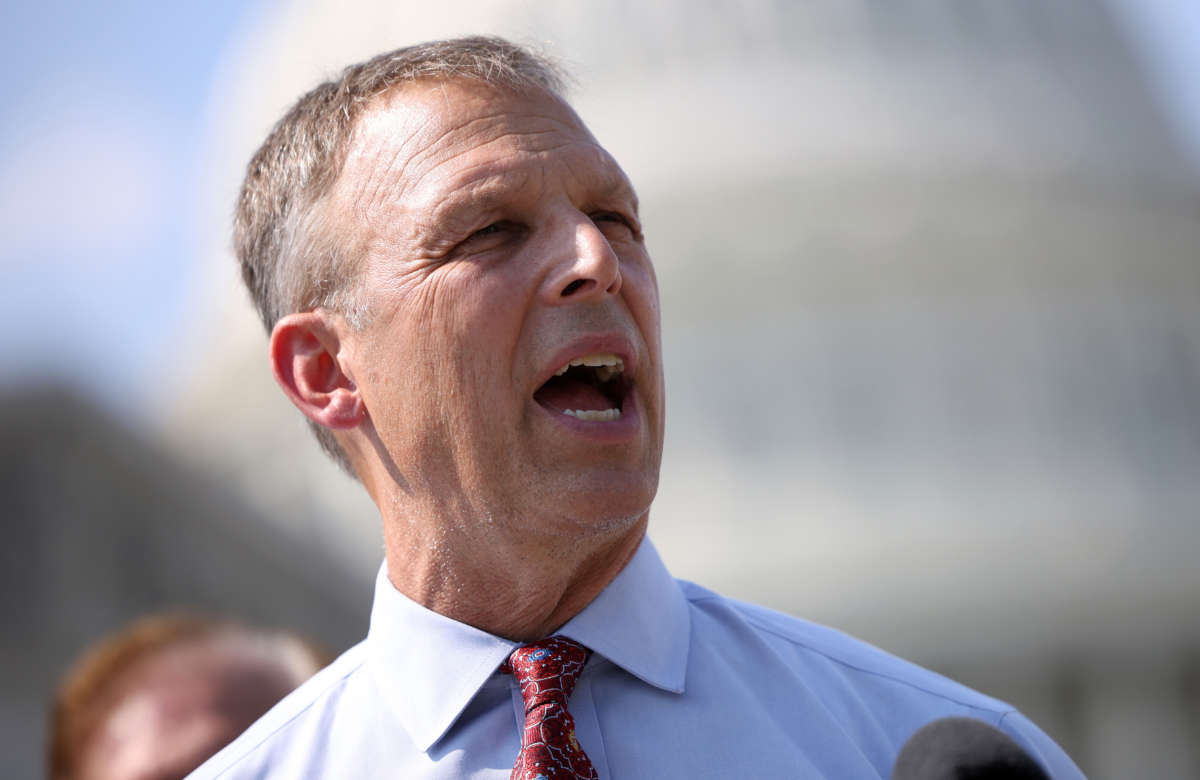The House select committee investigating the January 6 attack on the United States Capitol building has asked Trump loyalist Rep. Scott Perry (R-Pennsylvania) to provide documents and sit for testimony regarding the events of that day. This is the first known instance of such a request being made of a sitting member of Congress.
The January 6 commission announced on Monday that it was requesting information from Perry relating to his ties to the events of that day when a mob of loyal followers of President Donald Trump violently breached the Capitol building to disrupt the certification of the 2020 presidential election.
Perry indicated on Tuesday that he would not comply with the commission’s request. In his statement announcing his decision, he made clear that he did not respect the authority that the commission had in examining the events that led up to the Capitol attack.
“I stand with immense respect for our Constitution, the Rule of Law, and the Americans I represent who know that this entity is illegitimate, and not duly constituted under the rules of the US House of Representatives,” Perry said in a tweet.
Perry, himself a staunch devotee of the former president, was also asked to appear before the commission to discuss his involvement in a scheme to replace then-acting Attorney General Jeffrey Rosen (who refused to entertain Trump’s false claims of election fraud), with Jeffrey Clark, a Department of Justice (DOJ) official who appeared willing to go along with Trump’s lies.
“We have received evidence from multiple witnesses that you had an important role in the efforts to install Mr. Clark as acting Attorney General,” a letter from the commission’s chair, Rep. Bennie Thompson (D-Mississippi), said to Perry.
Indeed, Perry was allegedly the one who reportedly helped Trump to connect with Clark in the first place. As The New York Times reported last week, Perry was considered the “de facto sergeant” who coordinated with others on the plan to replace Rosen with Clark. A previous report from Democrats on the Senate Judiciary Committee also noted that Perry’s role in Trump’s attempts to alter the election results was “particularly notable.”
According to The New York Times, Perry had also pressed Richard Donoghue, another high-ranking DOJ official who was skeptical of election fraud claims from Trump’s camp, to allow Clark to investigate the election. Perry told Donogue that he had compiled a dossier allegedly full of evidence of election fraud, which Clark could “do something” with.
Trump himself had tried to use the powers of the DOJ to help disrupt the certification of the Electoral College, messaging Rosen directly about the plot to do so.
“Just say that the election was corrupt + leave the rest to me and the R. Congressmen,” Trump said in a phone call to Rosen in December, according to Rosen’s notes.
In his letter to Perry, Thompson also noted that the commission had received evidence from other witnesses that Perry had sent messages to Trump’s former chief of staff Mark Meadows regarding attempts to keep the former president in office — including some messages that were encrypted. (Meadows was found in contempt of Congress earlier this month for his refusal to testify before the January 6 commission regarding documents he had already shared.)
The commission chair told Perry they had planned to discuss these matters and more with Clark, but that Clark had invoked his 5th Amendment right against self-incrimination.
“When Mr. Clark decided to invoke his 5th Amendment rights, he understood that we planned to pose questions addressing his interactions with you, among a host of other topics,” Thompson wrote.
The request from the commission for Perry to provide documents and testify before investigators is not a compulsory one — Perry isn’t currently being subpoenaed, and he can reject the request at this time. However, it indicates that the commission could make similar requests in the future, possibly through subpoenas, to other members of Congress regarding their knowledge and involvement in the attack on the Capitol and the attempts to keep Trump in office, despite his clear loss to Joe Biden in the 2020 elections.
The commission is asking Perry to meet with them sometime in the last week of December or in the first two weeks of January. Investigators can meet with Perry in Washington, D.C., at the Capitol itself or in his home district, whichever he prefers, the letter said.
Join us in defending the truth before it’s too late
The future of independent journalism is uncertain, and the consequences of losing it are too grave to ignore. To ensure Truthout remains safe, strong, and free, we need to raise $22,000 by the end of today. Every dollar raised goes directly toward the costs of producing news you can trust.
Please give what you can — because by supporting us with a tax-deductible donation, you’re not just preserving a source of news, you’re helping to safeguard what’s left of our democracy.
